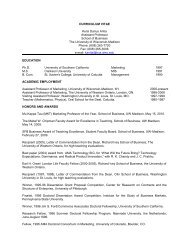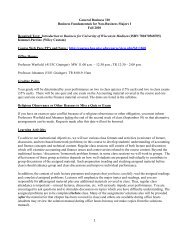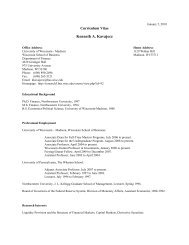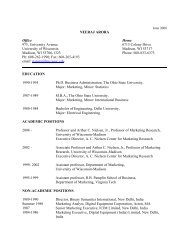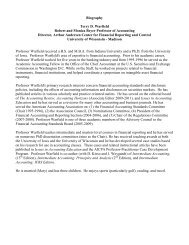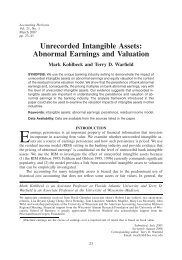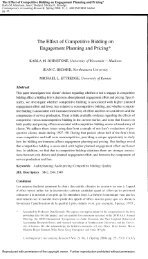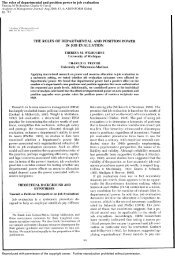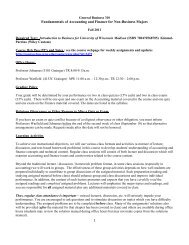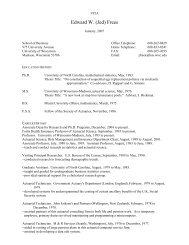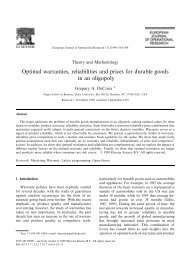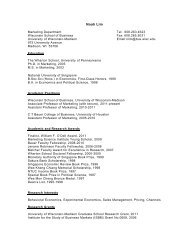family legacies - Wisconsin School of Business - University of ...
family legacies - Wisconsin School of Business - University of ...
family legacies - Wisconsin School of Business - University of ...
You also want an ePaper? Increase the reach of your titles
YUMPU automatically turns print PDFs into web optimized ePapers that Google loves.
Family Legacies<br />
interviewers then inquired about when the story was typically told. Four patterns emerged<br />
related to when <strong>family</strong> members told stories: <strong>family</strong> related events, context dependent situations,<br />
everyday informal communication, and third generation requests. First, emerging adults reported<br />
the stories which characterized their families were <strong>of</strong>ten told at or during <strong>family</strong> related events,<br />
including holiday celebrations, vacations, weddings, and funerals. Second, <strong>family</strong> members told<br />
the memorable story based on the specific context. For example, when a similar situation<br />
occurred or when the <strong>family</strong> was at a location that reminded them <strong>of</strong> the story, the context<br />
initiated the storytelling process between <strong>family</strong> members. One participant chose to tell a <strong>family</strong><br />
story about the time her mom spilled tuna casserole explaining the story was re-told “almost any<br />
time that that meal is had.” Third, <strong>family</strong> members told these stories during everyday informal<br />
communication, or simply when the <strong>family</strong> was together. Finally, the telling <strong>of</strong> these memorable<br />
stories occurred when the <strong>family</strong> member specifically asked to hear the story.<br />
Responding to <strong>legacies</strong><br />
The second research question asked how participants embraced and rejected <strong>family</strong><br />
<strong>legacies</strong>. In this section, participants’ reactions to their families’ <strong>legacies</strong> both enabled and<br />
constrained their individual identity. We know that individuals embrace or reject <strong>legacies</strong>. Our<br />
focus is on the complexity in individuals’ decisions to sustain or modify <strong>legacies</strong>.<br />
Embracing the positive. We asked third generation <strong>family</strong> members how they have<br />
embraced their <strong>legacies</strong> (i.e. passed them down or enacted them). A majority <strong>of</strong> the participants<br />
embraced their positive <strong>family</strong> <strong>legacies</strong>. The following participant illustrated embracing a <strong>family</strong><br />
legacy <strong>of</strong> dedication/ perseverance by enacting it in his/her own life:<br />
My first semester (in college) was really tough… I had a lot <strong>of</strong> illness and you know I<br />
stuck through it. And my dad came to me and said, “Do you want to switch schools after<br />
21



